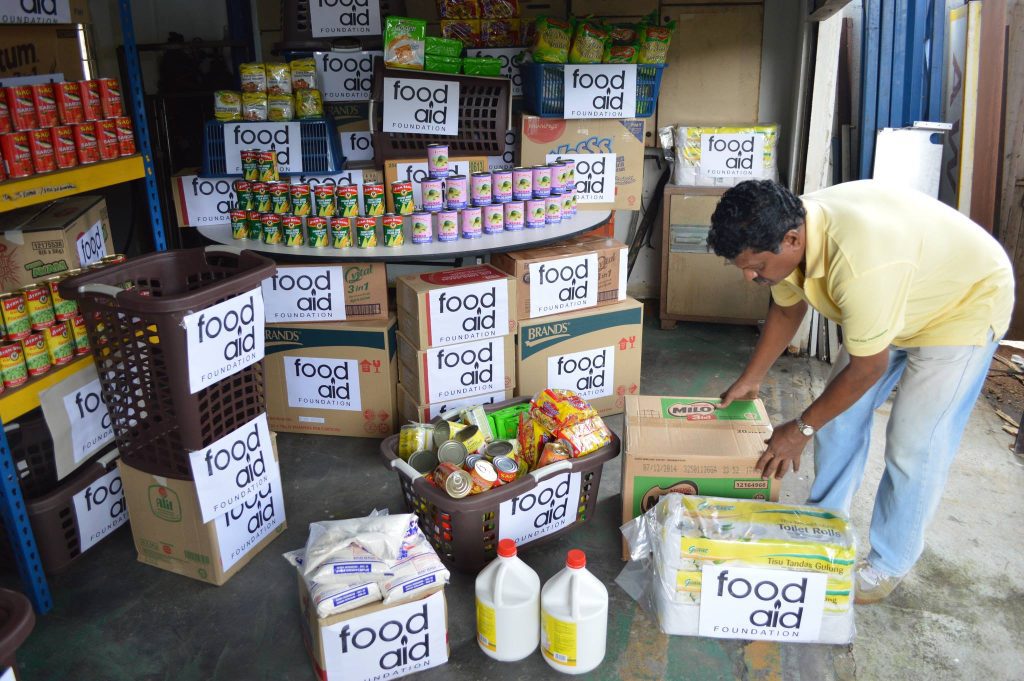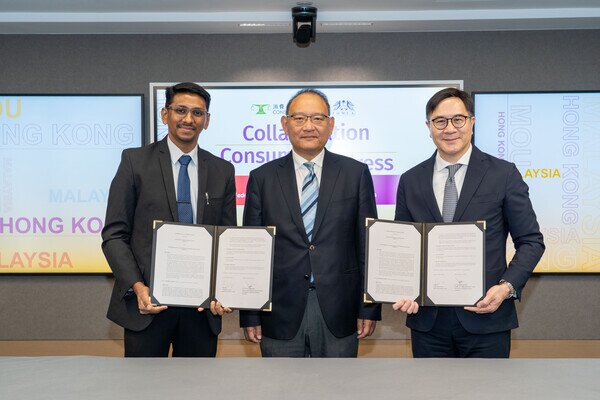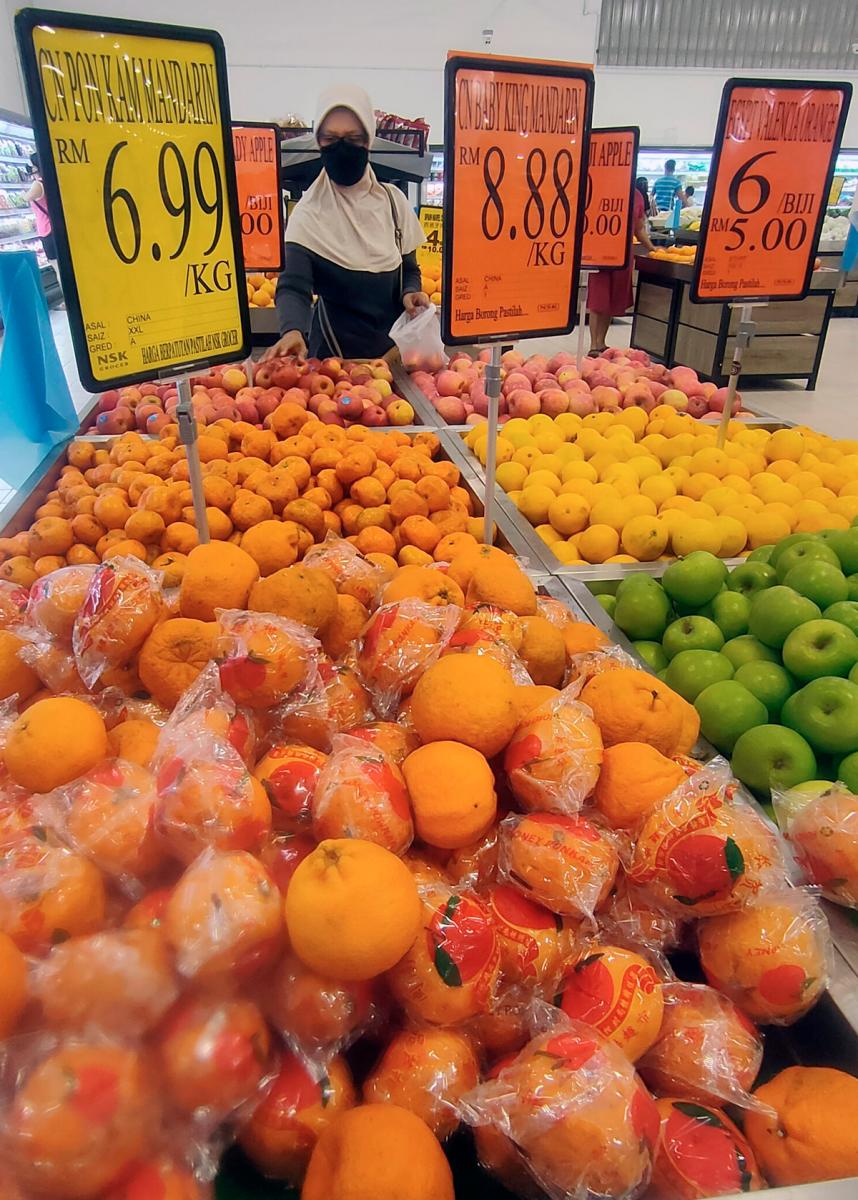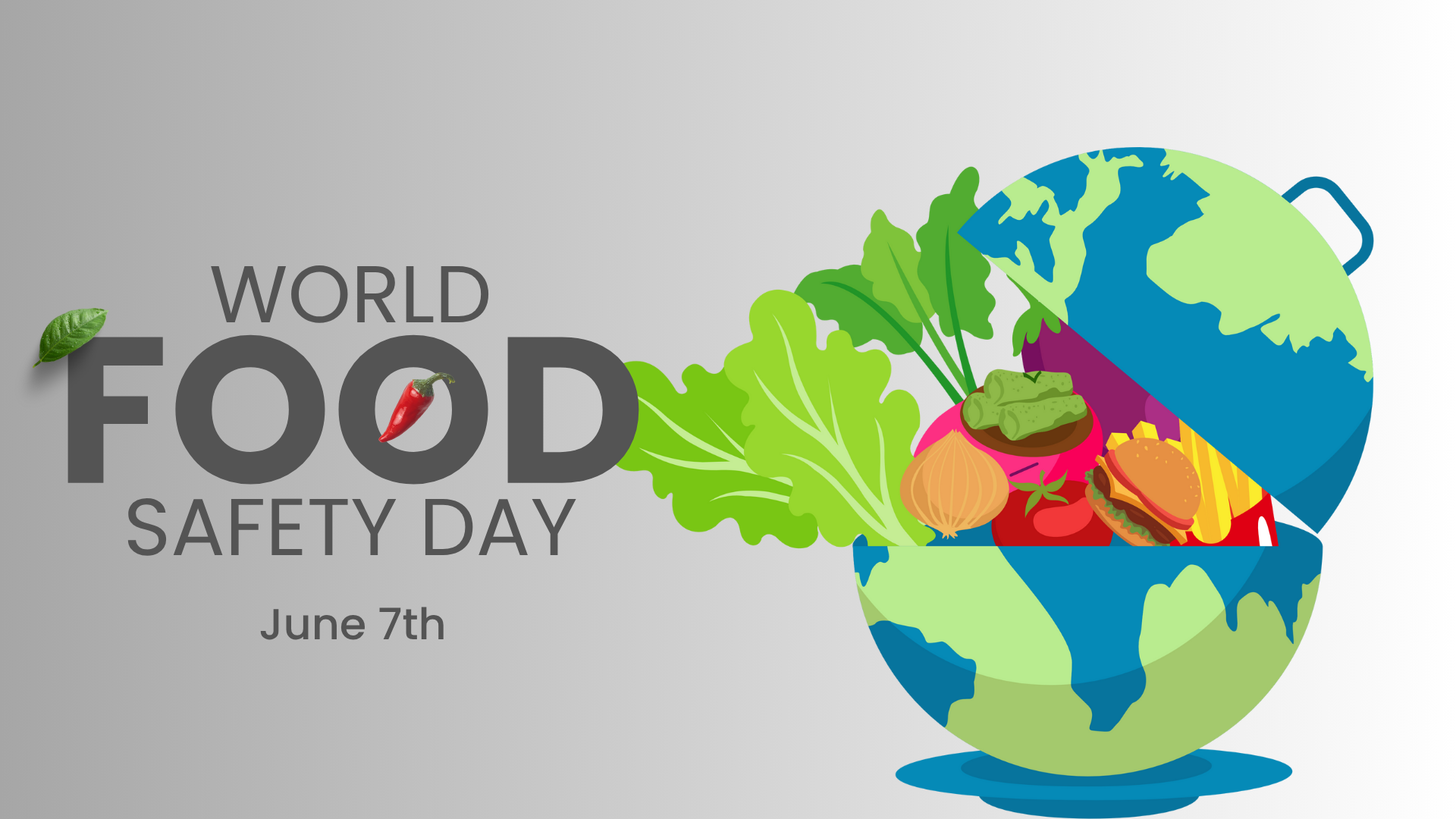Experts call for tax on vacant and unsold homes
- Details
 PETALING JAYA: Housing experts have called for a vacancy tax to help tackle the rise of vacant and unsold homes and lower property prices by discouraging speculation.They said many ŌĆ£affordableŌĆØ housing units are being held empty by owners or investors, making it harder for real buyers to find homes.
PETALING JAYA: Housing experts have called for a vacancy tax to help tackle the rise of vacant and unsold homes and lower property prices by discouraging speculation.They said many ŌĆ£affordableŌĆØ housing units are being held empty by owners or investors, making it harder for real buyers to find homes.Research associate K Theebalakshmi said a vacancy tax can prevent speculation and push developers to build homes that meet actual needs, reducing oversupply and supporting more balanced housing development.
Theebalakshmi, who is with Khazanah Research Institute, said housing prices in Malaysia rose by 5.8% a year between 2010 and 2022, well above the healthy growth range of 3% to 4%.
ŌĆ£While some fear falling home prices or rents, this kind of market correction (vacancy tax) may be just what we need to make housing more fair and stable,ŌĆØ she told FMT.
ŌĆ£In highly urbanised states where vacancy and overhang rates are high, a vacancy tax would help stop people from holding on to homes for quick profit.ŌĆØ
Figures from the statistics department show that nearly 20% of homes in Selangor and Penang were vacant in 2020.
More than 53,000 units were unoccupied in Penang, often waiting to be sold or rented out. In Selangor, 343,562 homes were reported vacant, with about 197,065 of them either newly completed or pending occupancy.
MRCA urges government to reconsider 8pct SST on retail rents
- Details
 KUALA LUMPUR: One of the country's largest retail groups, whose members employ over 400,000 people, has called on the government to consider a further review of the eight per cent Sales and Service Tax (SST) on commercial rentals.
KUALA LUMPUR: One of the country's largest retail groups, whose members employ over 400,000 people, has called on the government to consider a further review of the eight per cent Sales and Service Tax (SST) on commercial rentals.
This comes after the Finance Ministry announced an increase in the Service Tax registration threshold for commercial rentals from RM500,000 to RM1 million.
Malaysia Retail Chain Association (MRCA) vice-president Dr Afendi Dahlan said while they welcomed the revision, as it would help many micro, small and medium enterprises that fall within this range, there were concerns for other players.
He said businesses already faced higher overheads due to the rise in the minimum wage from RM1,500 to RM1,700, the rationalisation of diesel subsidies, higher electricity tariffs, e-invoicing and Employees Provident Fund contributions for foreign workers, among others.
Afendi said rental was among the key costs for any retailer, accounting for up to 20 per cent of total costs.
Read more: MRCA urges government to reconsider 8pct SST on retail rents
Fruit SST exemption a step in the right direction, but broader reforms needed, say consumer and health groups
- Details
 KUALA LUMPUR: Consumer and health groups say while the exemption of apples and oranges from the Sales and Service Tax (SST) is a positive move, it falls short of tackling deeper issues of food affordability, nutrition and profiteering.
KUALA LUMPUR: Consumer and health groups say while the exemption of apples and oranges from the Sales and Service Tax (SST) is a positive move, it falls short of tackling deeper issues of food affordability, nutrition and profiteering.
Federation of Malaysian Consumers Associations (Fomca) chief executive officer Datuk Dr Saravanan Thambirajah said the measure was too narrow and lacked a coherent food policy direction.
"While the exemption of apples and oranges from SST may offer some short-term relief, Fomca does not view this move as fully adequate or genuinely welcome. In principle, food ŌĆö being a basic human need ŌĆö should never have been subjected to SST in the first place," he said.
Malaysia Consumers Movement deputy president Beninder Johl said the taxation of fruits in any form was misguided.
"We don't support taxing fruits at all. Imported fruits aren't only consumed by the rich ŌĆö middle-income families buy them, too. We should be taxing unhealthy foods instead, not nutritious ones."
He also pointed out that local fruits were not necessarily more affordable.
"If we force a shift away from imported fruits, demand for local fruits could rise and push prices up further."
He said any expansion of SST must be backed by targeted subsidies, cash aid and support for local agriculture.
Consumers Association of Penang president Mohideen Abdul Kadeer said while SST exemptions for basic items were welcome, enforcement must be tightened to prevent price manipulation.
Govt should expand food aid programmes, says Fomca
- Details
 PETALING JAYA: The findings on food inflation over the decades by the Statistics Department (DOSM) is a call to action for reforms, says the Federation of Malaysian Consumers Associations (Fomca).
PETALING JAYA: The findings on food inflation over the decades by the Statistics Department (DOSM) is a call to action for reforms, says the Federation of Malaysian Consumers Associations (Fomca).
ŌĆ£Either we reform now, or we risk deepening inequality, worsening malnutrition, and undermining MalaysiaŌĆÖs economic and social resilience,ŌĆØ said secretary-general Saravanan Thambirajah.
He was commenting on the departmentŌĆÖs report that found a threefold increase in food prices in the past five decades.
ŌĆ£We must ensure every Malaysian has affordable access to nutritious, safe, and culturally appropriate food, regardless of income level or geography.
ŌĆ£For that, consumer empowerment must be matched by bold policy shifts, inclusive fiscal planning, and sustained political will. Only then can we build a resilient, just, and food-secure Malaysia for the next generation.ŌĆØ
Saravanan said the B40 and M40 segments are using multiple coping strategies which are not sustainable in the long term.
They include borrowing money or using Buy Now, Pay Later (BNPL) option to afford groceries and switching to lower quality food such as instant noodles and ultra-processed goods.
Read more: Govt should expand food aid programmes, says Fomca
HK Consumer Council and FOMCA ink deal to resolve cross-border consumer disputes
- Details
 Hong Kong Consumer Council (HKCC) and the Federation of Malaysian Consumers Association (FOMCA) has signed a memorandum of understanding (MOU) for collaboration on cross-border consumer disputes.
Hong Kong Consumer Council (HKCC) and the Federation of Malaysian Consumers Association (FOMCA) has signed a memorandum of understanding (MOU) for collaboration on cross-border consumer disputes.
This agreement aims to establish an information exchange and complaint referral mechanism, strengthening cooperation between the two parties in resolving cross-border consumer disputes.
As the fifth MOU that the HKCC has signed with a consumer body in Asia, following similar agreements with the Korea Consumer Agency in 2017, the National Consumer Affairs Centre of Japan in 2018, the Consumers Association of Singapore (CASE) in 2019, and the Thailand Consumers Council (TCC) in 2024, this MOU together with the other four underscore a shared commitment in enhancing protection for consumers in the region and boosting consumer confidence.
Under the agreement, residents of either Hong Kong or Malaysia involved in consumer disputes with traders in the other partyŌĆÖs territory may lodge complaints with their local consumer body upon returning to their place of residence.
With the complainantŌĆÖs prior consent, their local consumer body can refer the details and relevant documents of the complaint case to the other consumer body, which would then assist the consumer in resolving the dispute.
Read more: HK Consumer Council and FOMCA ink deal to resolve cross-border consumer disputes
ŌĆśPut on holdŌĆÖ: Stakeholders want Malaysian government to review expanded Sales and Service Tax
- Details
 They said concerns have been raised over the SSTŌĆÖs cascading nature, lack of clarity and potential to erode household spending while squeezing business margins.
They said concerns have been raised over the SSTŌĆÖs cascading nature, lack of clarity and potential to erode household spending while squeezing business margins.
PETALING JAYA ŌĆō Stakeholders want the government to review the expanded Sales and Service Tax (SST), warning that it could worsen living costs and place further strain on small businesses amid fragile economic conditions.
They said concerns have been raised over the SSTŌĆÖs cascading nature, lack of clarity and potential to erode household spending while squeezing business margins.
The Federation of Malaysian Consumers Associations (Fomca) said the expanded SST, set to take effect on July 1, would disproportionately impact lower and middle-┬Łincome groups.
Fomca chief executive officer Saravanan Thambirajah said B40 and M40 households, which already spend a large share of their income on essentials, would feel the brunt of a 5% tax on items like cooking oil, fruit and cereal.
ŌĆ£ItŌĆÖs not just about paying more. ItŌĆÖs about trade-offs families will have to make such as cutting back on nutrition or postponing medical and educational needs,ŌĆØ he said yesterday.
Local Call for clearer SST guidelines ahead of rollout
- Details
 Experts warn ambiguity could lead to unintended consequences such as pricing confusion and profiteering
Experts warn ambiguity could lead to unintended consequences such as pricing confusion and profiteering
PETALING JAYA: The government is being urged to release a clear, centralised list of taxable and exempted items under the expanded Sales and Service Tax (SST) to prevent confusion ahead of its implementation on July 1.
Economists warn that without authoritative guidance, businesses could face compliance issues and pricing disputes. They said a government-endorsed reference list is seen as critical to ensure clarity for companies, consumers and enforcement agencies.
A Finance Ministry spokesperson said the expanded SST will include a 5% sales tax on both locally manufactured and imported goods. However, locally grown fruits will be exempt, while imported fruits will be taxed.
ŌĆ£Selected imported food items such as rice, wheat, sugar, salt and meat remain exempt as they are considered basic essentials,ŌĆØ the ministry said, adding that both local and imported palm oil used for cooking will also continue to be exempted.
Still, confusion persists over what exactly is taxable. For example, cooking oil was initially believed to be taxed, but authorities later clarified that palm-based cooking oil, regardless of origin, remains exempt.
Read more: Local Call for clearer SST guidelines ahead of rollout
HereŌĆÖs to safer food for all
- Details
 TODAY is World Food Safety Day, and its theme ŌĆ£Food Safety: Prepare for the UnexpectedŌĆØ encourages everyone ŌĆō from home cooks to big food factories ŌĆō to stay alert, clean and ready because food safety isnŌĆÖt just a government thing. ItŌĆÖs an everyone, everywhere, every day kind of mission.
TODAY is World Food Safety Day, and its theme ŌĆ£Food Safety: Prepare for the UnexpectedŌĆØ encourages everyone ŌĆō from home cooks to big food factories ŌĆō to stay alert, clean and ready because food safety isnŌĆÖt just a government thing. ItŌĆÖs an everyone, everywhere, every day kind of mission.
The Health Ministry, through its Food Safety and Quality Division, and using laws like the Food Act 1983 and the Food Hygiene Regulations 2009, inspects restaurants, tests food samples and monitors imports.
It also deploys technology in the battle for safe food. This includes the myfoodtag app that lets users scan food products to check for allergens and nutrition info. There is also FOSIM: the Food Safety Information System of Malaysia is a digital system that tracks imported food to make sure nothing risky ends up in our supermarkets.
However, food safety cannot depend on rules alone. It needs structure, and thatŌĆÖs where standards come in. Think of standards like a recipe for doing things the right way.
One global favourite is ISO 22000, which helps food businesses big and small set up food safety management systems.
Ó«©Ó««Ó«żÓ»ü Ó«ēÓ«ŻÓ«ĄÓ»ü Ó«ÜÓ»üÓ«żÓ»ŹÓ«żÓ««Ó«ŠÓ«® Ó««Ó«▒Ó»ŹÓ«▒Ó»üÓ««Ó»Ź Ó«¬Ó«ŠÓ«żÓ»üÓ«ĢÓ«ŠÓ«¬Ó»ŹÓ«¬Ó«ŠÓ«®Ó«żÓ«ŠÓ«Ģ Ó«ćÓ«░Ó»üÓ«ĢÓ»ŹÓ«Ģ Ó«ĄÓ»ćÓ«ŻÓ»ŹÓ«¤Ó»üÓ««Ó»Ź!
- Details
 Ó«©Ó«ŠÓ««Ó»Ź Ó«ģÓ«®Ó»ŹÓ«▒Ó«ŠÓ«¤Ó««Ó»Ź Ó«ēÓ«¤Ó»ŹÓ«ĢÓ»ŖÓ«│Ó»ŹÓ«│Ó»üÓ««Ó»Ź Ó«ēÓ«ŻÓ«ĄÓ»ü Ó«ÜÓ»üÓ«żÓ»ŹÓ«żÓ««Ó«ŠÓ«®Ó«żÓ«ŠÓ«Ģ Ó««Ó«▒Ó»ŹÓ«▒Ó»üÓ««Ó»Ź Ó«¬Ó«ŠÓ«żÓ»üÓ«ĢÓ«ŠÓ«¬Ó»ŹÓ«¬Ó«ŠÓ«®Ó«żÓ«ŠÓ«Ģ Ó«ćÓ«░Ó»üÓ«ĢÓ»ŹÓ«Ģ Ó«ĄÓ»ćÓ«ŻÓ»ŹÓ«¤Ó»üÓ««Ó»Ź Ó«ÄÓ«® Ó««Ó«▓Ó»ćÓ«ÜÓ«┐Ó«» Ó«¬Ó«»Ó«®Ó»ĆÓ«¤Ó»ŹÓ«¤Ó«ŠÓ«│Ó«░Ó»ŹÓ«ĢÓ«│Ó»Ź Ó«żÓ«░Ó«©Ó«┐Ó«▓Ó»ł Ó«ÜÓ«ÖÓ»ŹÓ«ĢÓ«żÓ»ŹÓ«żÓ«┐Ó«®Ó»Ź Ó«¬Ó»ŖÓ«żÓ»üÓ«ÜÓ»Ź Ó«ÜÓ»åÓ«»Ó«▓Ó«ŠÓ«│Ó«░Ó»Ź Ó«ÜÓ«ŠÓ«░Ó«▓Ó»Ź Ó«£Ó»ćÓ««Ó»ŹÓ«ĖÓ»Ź Ó««Ó«ŻÓ«┐Ó«»Ó««Ó»Ź Ó«ĢÓ»éÓ«▒Ó«┐Ó«®Ó«ŠÓ«░Ó»Ź.
Ó«©Ó«ŠÓ««Ó»Ź Ó«ģÓ«®Ó»ŹÓ«▒Ó«ŠÓ«¤Ó««Ó»Ź Ó«ēÓ«¤Ó»ŹÓ«ĢÓ»ŖÓ«│Ó»ŹÓ«│Ó»üÓ««Ó»Ź Ó«ēÓ«ŻÓ«ĄÓ»ü Ó«ÜÓ»üÓ«żÓ»ŹÓ«żÓ««Ó«ŠÓ«®Ó«żÓ«ŠÓ«Ģ Ó««Ó«▒Ó»ŹÓ«▒Ó»üÓ««Ó»Ź Ó«¬Ó«ŠÓ«żÓ»üÓ«ĢÓ«ŠÓ«¬Ó»ŹÓ«¬Ó«ŠÓ«®Ó«żÓ«ŠÓ«Ģ Ó«ćÓ«░Ó»üÓ«ĢÓ»ŹÓ«Ģ Ó«ĄÓ»ćÓ«ŻÓ»ŹÓ«¤Ó»üÓ««Ó»Ź Ó«ÄÓ«® Ó««Ó«▓Ó»ćÓ«ÜÓ«┐Ó«» Ó«¬Ó«»Ó«®Ó»ĆÓ«¤Ó»ŹÓ«¤Ó«ŠÓ«│Ó«░Ó»ŹÓ«ĢÓ«│Ó»Ź Ó«żÓ«░Ó«©Ó«┐Ó«▓Ó»ł Ó«ÜÓ«ÖÓ»ŹÓ«ĢÓ«żÓ»ŹÓ«żÓ«┐Ó«®Ó»Ź Ó«¬Ó»ŖÓ«żÓ»üÓ«ÜÓ»Ź Ó«ÜÓ»åÓ«»Ó«▓Ó«ŠÓ«│Ó«░Ó»Ź Ó«ÜÓ«ŠÓ«░Ó«▓Ó»Ź Ó«£Ó»ćÓ««Ó»ŹÓ«ĖÓ»Ź Ó««Ó«ŻÓ«┐Ó«»Ó««Ó»Ź Ó«ĢÓ»éÓ«▒Ó«┐Ó«®Ó«ŠÓ«░Ó»Ź.
Ó«ÜÓ»üÓ«żÓ»ŹÓ«żÓ««Ó«▒Ó»ŹÓ«▒ Ó«ćÓ«¤Ó«żÓ»ŹÓ«żÓ«┐Ó«▓Ó»Ź Ó«żÓ«»Ó«ŠÓ«░Ó«┐Ó«ĢÓ»ŹÓ«ĢÓ«¬Ó»ŹÓ«¬Ó«¤Ó»üÓ««Ó»Ź Ó«ēÓ«ŻÓ«ĄÓ»ü, Ó«¬Ó«┤Ó»łÓ«» Ó«ēÓ«ŻÓ«ĄÓ»ü Ó«ĄÓ«ĢÓ»łÓ«ĢÓ«│Ó»ł Ó«ēÓ«¤Ó»ŹÓ«ĢÓ»ŖÓ«│Ó»ŹÓ«ĄÓ«żÓ»ł Ó«©Ó«ŠÓ««Ó»Ź Ó«ģÓ«®Ó»łÓ«ĄÓ«░Ó»üÓ««Ó»Ź Ó«żÓ«ĄÓ«┐Ó«░Ó»ŹÓ«ĢÓ»ŹÓ«Ģ Ó«ĄÓ»ćÓ«ŻÓ»ŹÓ«¤Ó»üÓ««Ó»Ź Ó«ÄÓ«® Ó«ģÓ«ĄÓ«░Ó»Ź Ó«ĢÓ»üÓ«▒Ó«┐Ó«¬Ó»ŹÓ«¬Ó«┐Ó«¤Ó»ŹÓ«¤Ó«ŠÓ«░Ó»Ź.
Ó«ćÓ«®Ó»ŹÓ«▒Ó»ü Ó«£Ó»éÓ«®Ó»Ź 7 Ó«ģÓ«®Ó»łÓ«żÓ»ŹÓ«żÓ»üÓ«▓Ó«Ģ Ó«ēÓ«ŻÓ«ĄÓ»ü Ó«¬Ó«ŠÓ«żÓ»üÓ«ĢÓ«ŠÓ«¬Ó»ŹÓ«¬Ó»ü Ó«żÓ«┐Ó«®Ó«żÓ»ŹÓ«żÓ»ł Ó««Ó»üÓ«®Ó»ŹÓ«®Ó«┐Ó«¤Ó»ŹÓ«¤Ó»ü Ó«ĄÓ»åÓ«│Ó«┐Ó«»Ó«┐Ó«¤Ó»ŹÓ«¤ Ó«ģÓ«▒Ó«┐Ó«ĢÓ»ŹÓ«ĢÓ»ł Ó«ÆÓ«®Ó»ŹÓ«▒Ó«┐Ó«▓Ó»Ź Ó«ģÓ«ĄÓ«░Ó»Ź Ó«ĢÓ»üÓ«▒Ó«┐Ó«¬Ó»ŹÓ«¬Ó«┐Ó«¤Ó»ŹÓ«¤Ó«ŠÓ«░Ó»Ź. Ó««Ó«▓Ó»ćÓ«ÜÓ«┐Ó«» Ó«ÜÓ»üÓ«ĢÓ«ŠÓ«żÓ«ŠÓ«░ Ó«ģÓ««Ó»łÓ«ÜÓ»ŹÓ«ÜÓ«┐Ó«®Ó»Ź Ó«ĢÓ»ĆÓ«┤Ó»Ź Ó«ÜÓ»åÓ«»Ó«▓Ó»ŹÓ«¬Ó«¤Ó»üÓ««Ó»Ź Ó«ēÓ«ŻÓ«ĄÓ»ü Ó«żÓ«░ Ó««Ó«▒Ó»ŹÓ«▒Ó»üÓ««Ó»Ź Ó«¬Ó«ŠÓ«żÓ»üÓ«ĢÓ«ŠÓ«¬Ó»ŹÓ«¬Ó»ü Ó«¬Ó«┐Ó«░Ó«┐Ó«ĄÓ»ü Ó«ćÓ«©Ó»ŹÓ«ż Ó«ĄÓ«┐Ó«ĄÓ«ĢÓ«ŠÓ«░Ó««Ó»Ź Ó«ĢÓ»üÓ«▒Ó«┐Ó«żÓ»ŹÓ«żÓ»ü Ó«ĄÓ«┐Ó«┤Ó«┐Ó«¬Ó»ŹÓ«¬Ó»üÓ«¤Ó«®Ó»Ź Ó«ćÓ«░Ó»üÓ«©Ó»ŹÓ«żÓ»ü Ó«ĄÓ«░Ó»üÓ«ĄÓ«żÓ«ŠÓ«Ģ Ó«ģÓ«ĄÓ«░Ó»Ź Ó«ÜÓ»üÓ«¤Ó»ŹÓ«¤Ó«┐Ó«ĢÓ»Ź Ó«ĢÓ«ŠÓ«¤Ó»ŹÓ«¤Ó«┐Ó«®Ó«ŠÓ«░Ó»Ź.
Ó«©Ó«ŠÓ««Ó»Ź Ó«ēÓ«¤Ó»ŹÓ«ĢÓ»ŖÓ«│Ó»ŹÓ«│Ó»üÓ««Ó»Ź Ó«ēÓ«ŻÓ«ĄÓ«┐Ó«®Ó«ŠÓ«▓Ó»Ź Ó«ĄÓ«»Ó«┐Ó«▒Ó»ŹÓ«▒Ó»ü Ó«ĢÓ»ŗÓ«│Ó«ŠÓ«▒Ó»ü Ó«ÅÓ«▒Ó»ŹÓ«¬Ó«¤Ó«ĢÓ»ŹÓ«ĢÓ»éÓ«¤Ó«ŠÓ«żÓ»ü Ó«ÄÓ«®Ó»ŹÓ«¬Ó«żÓ»ł Ó«ēÓ«▒Ó»üÓ«żÓ«┐ Ó«ÜÓ»åÓ«»Ó»ŹÓ«» Ó«ćÓ«©Ó»ŹÓ«ż Ó«¬Ó«┐Ó«░Ó«┐Ó«ĄÓ»ü Ó«¬Ó«ŠÓ«żÓ»üÓ«ĢÓ«ŠÓ«¬Ó»ŹÓ«¬Ó»ü Ó«©Ó«¤Ó«ĄÓ«¤Ó«┐Ó«ĢÓ»ŹÓ«ĢÓ»łÓ«ĢÓ«│Ó»ł Ó««Ó»ćÓ«▒Ó»ŹÓ«ĢÓ»ŖÓ«ŻÓ»ŹÓ«¤Ó»ü Ó«ĄÓ«░Ó»üÓ«ĄÓ«żÓ«ŠÓ«Ģ Ó«ģÓ«ĄÓ«░Ó»Ź Ó«ÜÓ»üÓ«¤Ó»ŹÓ«¤Ó«┐Ó«ĢÓ»ŹÓ«ĢÓ«ŠÓ«¤Ó»ŹÓ«¤Ó«┐Ó«®Ó«ŠÓ«░Ó»Ź. Ó«ćÓ«░Ó«ĄÓ»ü Ó«ÜÓ«©Ó»ŹÓ«żÓ»ł, Ó«ēÓ«ŻÓ«ĄÓ«ĢÓ«ÖÓ»ŹÓ«ĢÓ«│Ó»Ź Ó««Ó«▒Ó»ŹÓ«▒Ó»üÓ««Ó»Ź Ó«¬Ó«│Ó»ŹÓ«│Ó«┐Ó«ĢÓ«│Ó«┐Ó«▓Ó»Ź Ó«ÜÓ«┐Ó«▒Ó»ŹÓ«▒Ó»üÓ«ŻÓ»ŹÓ«¤Ó«┐ Ó«ÜÓ«ŠÓ«▓Ó»łÓ«ĢÓ«│Ó«┐Ó«▓Ó»Ź Ó«ĄÓ«┐Ó«▒Ó»ŹÓ«ĢÓ«¬Ó»ŹÓ«¬Ó«¤Ó»üÓ««Ó»Ź Ó«ēÓ«ŻÓ«ĄÓ»ü Ó«ÜÓ»üÓ«żÓ»ŹÓ«żÓ««Ó«ŠÓ«®Ó«żÓ«Š Ó««Ó«▒Ó»ŹÓ«▒Ó»üÓ««Ó»Ź Ó«¬Ó«ŠÓ«żÓ»üÓ«ĢÓ«ŠÓ«¬Ó»ŹÓ«¬Ó«ŠÓ«®Ó«żÓ«Š Ó«ÄÓ«®Ó»ŹÓ«¬Ó«żÓ»ł Ó«©Ó«ŠÓ««Ó»Ź Ó««Ó»üÓ«żÓ«▓Ó«┐Ó«▓Ó»Ź Ó«żÓ»åÓ«░Ó«┐Ó«©Ó»ŹÓ«żÓ»ü Ó«ĢÓ»ŖÓ«│Ó»ŹÓ«│ Ó«ĄÓ»ćÓ«ŻÓ»ŹÓ«¤Ó»üÓ««Ó»Ź. Ó«ēÓ«ŻÓ«ĄÓ»ü Ó«¬Ó«ŠÓ«żÓ»üÓ«ĢÓ«ŠÓ«¬Ó»ŹÓ«¬Ó»ü Ó«żÓ«░ Ó«©Ó«┐Ó«▓Ó»łÓ«»Ó»ł Ó«ģÓ«¤Ó«┐Ó«¬Ó»ŹÓ«¬Ó«¤Ó»łÓ«»Ó«ŠÓ«Ģ Ó«ĢÓ»Ź Ó«ĢÓ»ŖÓ«ŻÓ»ŹÓ«¤Ó«żÓ»ü.
Ancaman mikroplastik kian meruncing, Malaysia giat hijaukan negara
- Details
 SHAH ALAM- Malaysia tidak ketinggalan dalam usaha mengurangkan kesan buruk plastik terhadap alam sekitar selaras dengan komitmen terhadap kelestarian bumi.
SHAH ALAM- Malaysia tidak ketinggalan dalam usaha mengurangkan kesan buruk plastik terhadap alam sekitar selaras dengan komitmen terhadap kelestarian bumi.
Setiausaha Agung Persatuan Pengguna-pengguna Standards Malaysia, Saral James Maniam berkata, setiap 5 Jun dunia menyambut Hari Alam Sekitar Sedunia dan tahun ini temanya cukup jelas iaitu 'Atasi Pencemaran Plastik', dengan Korea Selatan menjadi tuan rumah sambutan 2025.
"Seluruh dunia digesa bertindak segera menangani krisis pencemaran plastik yang semakin meruncing dan negara kita tidak ketinggalan.
"Dari sekolah hingga ke pusat membeli-belah, peniaga kecil hingga ke syarikat gergasi termasuk pihak berkuasa tempatan (PBT), pelbagai inisiatif telah digerakkan demi masa depan lebih hijau dan lestari," katanya dalam satu kenyataan pada Jumaat.
Ujar Saral, ancaman mikroplastik pada hari ini hakikatnya semakin meruncing dengan ia mudah ditemui dalam makanan, minuman dan darah manusia.
Read more: Ancaman mikroplastik kian meruncing, Malaysia giat hijaukan negara
Page 6 of 111



















